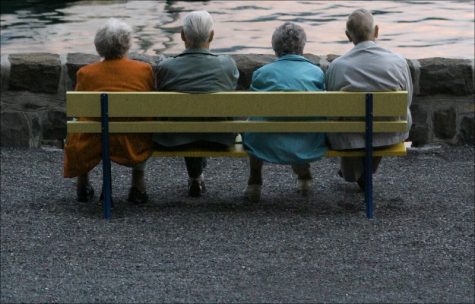Gaming to Cure Dementia

Sea Hero Quest, a new gaming app developed by Deutsche Telecom, Alzheimer’s Research U.K, University College London, and University of East Anglia, can actually test users for dementia. During the game, the player sails around the world looking for items that were previously presented to them in the game. For example, the player might go to Belgium looking for a paper airplane they saw in Australia, and must remember what the paper airplane looks like in order to recover it. By testing the user’s memory, scientists can discern whether or not that person has any symptoms of dementia.
The game also tests navigational skill, which is the first skill to deteriorate in early stages of onset dementia. The preliminary results of the game released at the 2016 Neuroscience Convention show that navigational ability deteriorates beginning in early adulthood, contradicting scientists’ previous conception that early stages of dementia only begin in old age.
Since Sea Hero Quest’s release, over 2.4 million people have played it around the world, a sample that is roughly equivalent to 9,000 years of lab data, according to Sea Hero Quest. The data also revealed that players’ spatial awareness and navigational abilities differed between genders and countries.
To decipher players affected by dementia from the rest of the players, scientists look at the results of the broad spectrum of healthy young people playing the game and single out the outliers as possible dementia patients. As scientists sifted through the results, they found a shocking discovery: dementia can start as young as nineteen. The part of the game that produced the most helpful data is a section where the player is asked to shoot a flare in the direction they came from. According to CNN, nineteen-year-old players were likely to shoot the flare in the correct direction 75 percent of the time, which is a lower number than expected. By the time the age of the player reached seventy-five, the players’ average accuracy plummeted to 46 percent.

Dementia has become a growing concern in the global community in the past few years. According to the World Alzheimer Report, over 46 million people were living with dementia in 2015. Before Sea Hero Quest, there was no accurate way to test if someone had dementia. Scientists knew that memory loss and decrease in navigational skills were symptoms of dementia, but they did not know enough about how healthy people navigate to create a barometer of normal to below average navigational skills before Sea Hero Quest. The next step for the game is to test it on people with Alzheimer’s to see if there is any difference between their navigational skills and a person with dementia’s. The purpose of this would be to better identify Alzheimer’s from dementia in the future.
Another benefit of Sea Hero Quest is that by playing the game, a patient could be diagnosed with dementia before any actual brain damage occurs. The game could also be used to test current medicine for dementia by having a person taking dementia medicine play the game before and after being medicated to measure improvement in their results.
Another possibility for the game is brain screening, a process in which a person’s brain is monitored to display which sections of the brain are active during certain situations. This could be useful for players of Sea Hero Quest to tell scientists more about which areas of the brain deteriorate first in the early stages of dementia. “I hope to collect neuroimaging data from people playing this game to really understand how the circuits are activated as people play the game,” Spiers says.
“These new insights into how humans navigate have only come as a result of a new kind of collaboration in dementia research,” says Hilary Evens, Chief Executive of Alzheimer’s research in the U.K. With new advances in technology and updated research, Sea Hero Quest is paving the way for a new revolution of medical science. If the results of Sea Hero West continue to be useful and informative, games like it are probably going to become more common. Sea Hero Quest and the games of the future are bringing the world one step closer to a cure.





